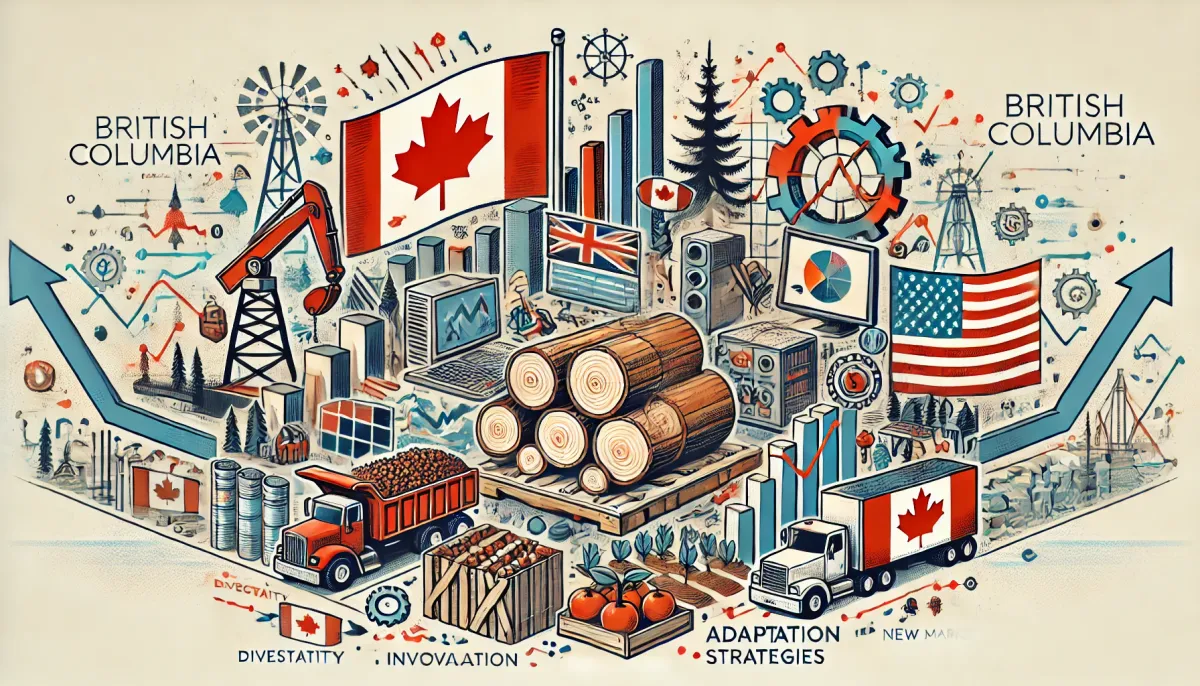
The recent escalation of U.S. tariffs on Canadian goods has significant implications for businesses in British Columbia (B.C.). On February 1, 2025, President Donald Trump imposed a 25% tariff on all Canadian imports, excluding energy products, which are subject to a 10% tariff. This action has prompted Canada to respond with equivalent tariffs on U.S. goods, intensifying the trade dispute between the two nations.
In B.C., the forestry sector is particularly vulnerable due to its reliance on the U.S. market. Historically, the softwood lumber industry has been a contentious point in Canada-U.S. trade relations, with disputes over subsidies and tariffs dating back decades. The latest U.S. tariffs exacerbate these longstanding issues, potentially leading to reduced exports and financial strain on local lumber producers.
The agricultural sector in B.C. also faces challenges. Products such as vegetables, fruits, and seafood, which are significant exports to the U.S., may experience decreased demand due to increased prices resulting from the tariffs. This could lead to surplus supplies domestically, affecting local prices and the profitability of B.C. farmers and fishers.
In response, the provincial government has implemented measures to mitigate the impact. Premier David Eby announced initiatives to support affected industries, including accelerating approvals for major projects to stimulate the local economy and exploring new trade markets to reduce dependency on the U.S. Additionally, the government has directed the BC Liquor Distribution Branch to cease purchasing American liquor from certain states, promoting local alternatives instead.
Businesses in B.C. are also adapting by reassessing their supply chains and exploring alternative markets. For instance, some local breweries are sourcing cans from countries like China instead of the U.S. to circumvent the increased costs associated with tariffs.
While these tariffs pose challenges, they also present an opportunity for B.C. businesses to innovate and diversify. By focusing on local markets and seeking new international partners, B.C. can bolster its economic resilience in the face of ongoing trade tensions.
_______________________________________________________
Jenny is a business insurance broker with Waypoint Insurance. She can be reached at 604-317-6755 or jhansen@waypoint.ca. Connect with Jenny on LinkedIn at https://www.linkedin.com/in/jenny-holly-hansen-365b691b/. Connect with Jenny at BlueSky: https://bsky.app/profile/jennyhollyhansen.bsky.social
Jenny Holly Hansen is a cohost with Chris Sturges of the Langley Impact Networking Group. You are welcome to join us on Thursday’s from 4pm to 6pm at: Sidebar Bar and Grill: 100b - 20018 83A Avenue, Langley, BC V2Y 3R4
Tags: #Jenny Holly Hansen #Canada - US Trade War #Forestry Sector #Agricultural Sector #BC Liquor Distribution #Supply Chain Management

